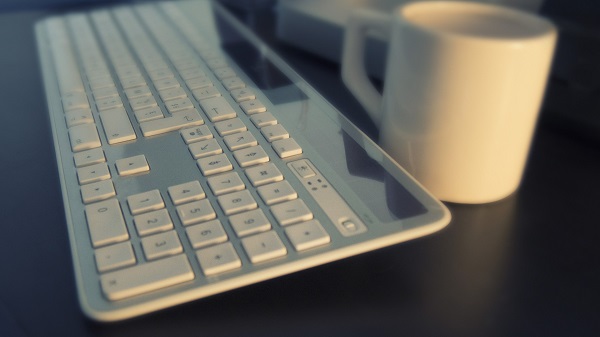There’s more to earning a graduate degree in curriculum and instruction, one of the highest paying master’s degrees, than just checking off a list of courses. Before you can graduate with your master’s degree, you may have to complete a capstone project, course or experience. Generally, a capstone project or experience is the finale of your graduate education, capping off your studies and showcasing how the skills and knowledge you have learned can be put to use in the real world. The capstone in a curriculum and instruction master’s degree program can take several different forms, including a thesis or research project, an internship or practicum, a portfolio, a comprehensive examination or some combination of these components.
Writing a Thesis or Dissertation
IMAGE SOURCE: Pixabay, public domain
One of the most common forms of a capstone project is the master’s thesis, a long and detailed academic paper. A thesis is typically based on original research that may be quantitative in nature, like experiments and surveys, or qualitative in nature, such as case studies. Conducting the research and composing and defending your thesis requires a great deal of time and work. You may choose to focus the research for your thesis on any area of the field of curriculum and instruction that interests you, from examining how new instructional technologies perform in the classroom to delving into issues involving the experiences of students and teachers.
Throughout the process of completing your thesis, from the initial topic proposal to the final review and defense of your thesis, you will work with an advisor. You may wish to submit your finished research manuscript to a journal for publication.
Completing an Internship or Practicum
Another requirement that exists in many curriculum and instruction master’s degree programs is an internship or practicum experience. An internship or practicum is a sort of real-world experience that allows you to use what you’ve learned in a practical setting. For graduate students of curriculum and instruction, this usually means working in school, although internships can also take place in non-profit programs or in for-profit companies that focus on curriculum development.
As a form of experiential learning, internships entail more than just observing. They provide students with an opportunity to work on tasks like creating programs, researching teaching methods and cultivating learning materials and a curriculum that fit the school’s curriculum standards and learning goals. In your intern or practicum experience, you will work alongside established instructional coordinators, curriculum specialists and administrators. Throughout your internship, you may need to complete assignments and written reflections on your experiences as part of your course requirements.
Internships can be paid or unpaid, but even unpaid internships count toward the credits you need to earn your degree.
Building a Portfolio
A portfolio is a collection of your work. While you may think of portfolios as applying primarily to creative occupations, it isn’t only artists, writers and musicians who can cultivate a portfolio. For students preparing to graduate from a master’s degree program in curriculum and instruction, a portfolio often includes artifacts and evidence of any fieldwork experiences you completed, as well as reflections on the coursework you completed and the skills you have developed.
Your portfolio may be a graduation requirement, but putting it all together can also help you prepare to find a job with your degree. Opportunities for instructional coordinators are growing at a faster than average rate, according to the United States Bureau of Labor Statistics (BLS), but these jobs are much rarer than classroom teacher roles. The BLS reported that there are only 192,900 instructional coordinators in the U.S., compared to a combined total of 3,257,700 kindergarten, elementary, middle and high school teachers. As you compile reflective statements, standout assignments and information on your field experiences and coursework into your portfolio, you will become better prepared to write effective cover letters that accompany job applications and answer the questions that arise in a job interview. You may even choose to submit all or part of your portfolio as part of job applications in your field.
Many portfolios today are web-based rather than printed. In any case, you need to follow the structure and requirements of your program.
Taking a Comprehensive Exam
A written test may feel like the least exciting of the capstone projects offered to graduate students, but – especially for non-thesis programs – it does serve the purpose of demonstrating your knowledge. A comprehensive examination may consist entirely of a written assignment or include an oral component. Although the primary aim of the comprehensive examination is to judge your knowledge of perspectives and best practices in curriculum and instruction, the quality of your personal insights and your writing style can also contribute to your score. Often, the comprehensive exam is in the form of essay questions rather than multiple-choice questions. Instead of having to choose the right answer from dozens, or hundreds, of questions, you may be asked to write an astute response to just a few questions.
The content of the comprehensive exam you take may cover knowledge accumulated over the course of your studies, or it may focus on a couple of specific areas of knowledge relevant to your coursework and career goals and determined by your advisor.
Additional Resources
What Kind of Form Does a Dissertation in Curriculum and Instruction Usually Take?
What Kind of Classes Will I Be Taking in a Curriculum and Instruction Master’s Program?
What Are Some Areas I Can Specialize in as a Curriculum and Instruction Student?


